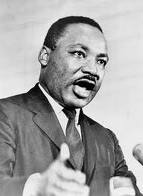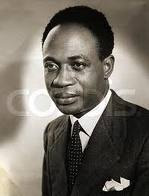AN APPEAL FOR SUPPORT
- We seek your support to meet the expenses relating to the formatting of articles and books, maintaining and running the journal through hosting, correspondences, etc. Please write to the Editor in his e-mail address languageinindiaUSA@gmail.com to find out how you can support this journal. Thank you. Thirumalai, Editor.
BOOKS FOR YOU TO READ AND DOWNLOAD FREE!
- English Language Teaching (ELT) in Saudi Arabia: A Study of Learners' Needs Analysis with Special Reference to Community College, Najran University ... Dr. Mohd. Mahib ur Rahman, Ph.D.
- Provision for Linguistic Diversity and Linguistic Minorities in India ... Vanishree V.M., MAPL and ELT, M.A., PGDHRM.
- Impact of Students' Attitudes on their Achievement in English: A Study in the Yemeni Context ... Hassan Saeed Awadh Ba-Udhan
- A Study of B.ED. Students' Attitude Towards Using Internet in Vellore District, Tamilnadu, India ... T. Pushpanathan, M.A., M.Phil., B.Ed.
- Development of a Hindi to Punjabi Machine Translation System, A Doctoral Dissertation ... Vishal Goyal, Ph.D.
- A Report on the State of Urdu Literacy in India, 2010 ...
Omar Khalidi, Ph.D. - English for Medical Students of Hodeidah University, Yemen - A Pre-sessional Course ...
Arif Ahmed Mohammed Hassan Al-Ahdal, Ph.D. Scholar - Global Perspective of Teaching English Literature in Higher Education in Pakistan ...
Rabiah Rustam, M.S., Ph.D. Candidate - Improving Chemmozhi Learning and Teaching - Descriptive Studies in Classical-Modern Tamil Grammar ...
A. Boologa Rambai, Ph.D. - A Phonetic and Phonological Study of
the Consonants of English and Arabic ...
Abdulghani A. Al-Hattami, Ph.D. Candidate - Some Aspects of Teaching-Learning English as a
Second Language ...
R. Krishnaveni, M.A., M.Sc., M.Phil., Ph.D. Candidate - The Influence of First Language Grammar (L1) on
the English Language (L2) Writing of Tamil School Students: A Case Study from Malaysia ...
Mahendran Maniam, Ph.D. (ESL) - Economics of Crime : A Comparative Analysis of the Socio-Economic Conditions of Convicted Female and Male Criminality In Selected Prisons in Tamil Nadu ...
S. Santhanalakshmi, Ph.D. - Technique as Voyage of Discovery: A Study of the Techniques in Dante's Paradiso ...
Raji Narasimhan, M.A. - A Critical Study of The Wasteland - Poetry as Metaphor ...
K. R. Vijaya, M.A., M.Phil. - Language and Literature: An Exposition - Papers Presented in the Karunya University National Seminar ...
Editor: J. Sundar Singh, Ph.D. - Purism and Language Planning in a Multilingual Context ...
L. Ramamoorthy, Ph.D. - Papers Presented in the All-India Conference on Multimedia Enhanced Language Teaching - MELT 2009 ...
L. Ramamoorthy, Ph.D. and J.R. Nirmala, Ph.D. - A Phonological Study of Variety of English Spoken by Oriya Speakers in Western Orissa - A Doctoral Dissertation ... Arun K. Behera, Ph.D.
- Phonological Analysis of English Phonotactics of Syllable Initial and Final Consonant Clusters by Yemeni Speakers of English ... Abdulghani. M. A. Al-Shuaibi, M.A.
- A Study of Structural Duplication in Tamil and Telugu - A Doctoral Dissertation ... Parimalagantham, Ph.D.
- The Politics of Survival in the Novels of Margaret Atwood ... Pauline Das, Ph.D.
- Nonverbal Communication in Tamil Novels - A Book in Tamil ... M. S. Thirumalai, Ph.D.
- A Study of English Loan Words in Selected Bahasa Melayu Newspaper Articles...
Shamimah Binti Haja Mohideen, M.HSc. (TESL) - The Internal Landscape and the Existential Agony of Women in Anjana Appachana’s Novel LISTENING NOW, A Doctoral Dissertation ...
M. Poonkodi, Ph.D. - Trends and Spatial Patterns of Crime in India - A Case Study of a District in India ...
M. Jayamala,, Ph.D. - The Trading Community in Early Tamil Society Up To 900 AD ...
R. Jeyasurya, M.A., M.Phil., Ph.D. - A Study of Auxiliaries in the Old and the Middle Tamil ...
A.Boologarambai, M.A., Ph.D. - History of Growth and Reforms of British Military Administration in India, 1848-1949 ...
Hemalatha, M.A., M.Phil. - Language of Mass Media: A Study Based on Malayalam Broadcasts - A Doctoral Dissertation ...
K. Parameswaran, Ph.D. - Form and Function of Disorders in Verbal Narratives - A Doctoral Dissertation ...
Kandala Srinivasacharya, Ph.D. - Status Marking in Tamil - A Ph.D. Dissertation ...
P. Perumalsamy, Ph.D. - LANGUAGE AND POWER IN COMMUNICATION ...
Editors: Jennifer M. Bayer, Ph.D., and Pushpa Pai, Ph.D. - Onomatopoeia in Tamil ...
V. Gnanasundaram, Ph.D. - Linguistics and Literature ...
C.Shunmugom, Ph.D., and C. Sivashanmugam, Ph.D., V. Thayalan, Ph.D. and C. Sivakumar, Ph.D. (Editors) - Translation: New Dimensions ...
C.Shunmugom, Ph.D., and C. Sivashanmugam, Ph.D., Editors - Language of Headlines in Kannada Dailies ...
M. N. Leelavathi, Ph.D. - Cooperative Learning Incorporating Computer-Mediated Communication: Participation, Perceptions, and Learning Outcomes in a Deaf Education Classroom ...
Michelle Pandian, M.S. -
The Effects of Age on the Ability to Learn English As a Second Language ...
Mariam Dadabhai, B.A. Hons. - A STUDY OF THE SKILLS OF READING COMPREHENSION IN ENGLISH DEVELOPED BY STUDENTS OF STANDARD IX IN THE SCHOOLS IN TUTICORIN DISTRICT, TAMILNADU ...
A. Joycilin Shermila, Ph.D. - A Socio-Pragmatic Comparative Study of Ostensible Invitations in English and Farsi ...
Mohammad Ali Salmani-Nodoushan, Ph.D. - ADVANCED WRITING - A COURSE TEXTBOOK ...
Parviz Birjandi, Ph.D.
Seyyed Mohammad Alavi, Ph.D.
Mohammad Ali Salmani-Nodoushan, Ph.D. - TEXT FAMILIARITY, READING TASKS, AND ESP TEST PERFORMANCE: A STUDY ON IRANIAN LEP AND NON-LEP UNIVERSITY STUDENTS - A DOCTORAL DISSERTATION ...
Mohammad Ali Salmani-Nodoushan, Ph.D. - A STUDY ON THE LEARNING PROCESS OF ENGLISH
BY HIGHER SECONDARY STUDENTS
WITH SPECIAL REFERENCE TO DHARMAPURI DISTRICT IN TAMILNADU ...
K. Chidambaram, Ph.D. - SPEAKING STRATEGIES TO OVERCOME COMMUNICATION DIFFICULTIES IN THE TARGET LANGUAGE SITUATION - BANGLADESHIS IN NEW ZEALAND ...
Harunur Rashid Khan - THE PROBLEMS IN LEARNING MODAL AUXILIARY VERBS IN ENGLISH AT HIGH SCHOOL LEVEL ...
Chandra Bose, Ph.D. Candidate - THE ROLE OF VISION IN LANGUAGE LEARNING
- in Children with Moderate to Severe Disabilities ...
Martha Low, Ph.D. - SANSKRIT TO ENGLISH TRANSLATOR ...
S. Aparna, M.Sc. - A LINGUISTIC STUDY OF ENGLISH LANGUAGE CURRICULUM AT THE SECONDARY LEVEL IN BANGLADESH - A COMMUNICATIVE APPROACH TO CURRICULUM DEVELOPMENT by
Kamrul Hasan, Ph.D. - COMMUNICATION VIA EYE AND FACE in Indian Contexts by
M. S. Thirumalai, Ph.D. - COMMUNICATION
VIA GESTURE: A STUDY OF INDIAN CONTEXTS by M. S. Thirumalai, Ph.D. - CIEFL Occasional
Papers in Linguistics,
Vol. 1 - Language, Thought
and Disorder - Some Classic Positions by
M. S. Thirumalai, Ph.D. - English in India:
Loyalty and Attitudes
by Annika Hohenthal - Language In Science
by M. S. Thirumalai, Ph.D. - Vocabulary Education
by B. Mallikarjun, Ph.D. - A CONTRASTIVE ANALYSIS OF HINDI
AND MALAYALAM
by V. Geethakumary, Ph.D. - LANGUAGE OF ADVERTISEMENTS
IN TAMIL
by Sandhya Nayak, Ph.D. - An Introduction to TESOL:
Methods of Teaching English
to Speakers of Other Languages
by M. S. Thirumalai, Ph.D. - Transformation of
Natural Language
into Indexing Language:
Kannada - A Case Study
by B. A. Sharada, Ph.D. - How to Learn
Another Language?
by M.S.Thirumalai, Ph.D. - Verbal Communication
with CP Children
by Shyamala Chengappa, Ph.D.
and M.S.Thirumalai, Ph.D. - Bringing Order
to Linguistic Diversity
- Language Planning in
the British Raj by
Ranjit Singh Rangila,
M. S. Thirumalai,
and B. Mallikarjun
Girish Karnad as a Modern Indian Dramatist - A Study ...
B. Reena, M.A., M.Phil.
REFERENCE MATERIAL
- UNIVERSAL DECLARATION OF LINGUISTIC RIGHTS
- Lord Macaulay and
His Minute on
Indian Education - In Defense of
Indian Vernaculars
Against
Lord Macaulay's Minute
By A Contemporary of
Lord Macaulay - Languages of India,
Census of India 1991 - The Constitution of India:
Provisions Relating to
Languages - The Official
Languages Act, 1963
(As Amended 1967) - Mother Tongues of India,
According to
1961 Census of India
BACK ISSUES
- E-mail your articles and book-length reports in Microsoft Word to languageinindiaUSA@gmail.com.
- Contributors from South Asia may e-mail their articles to
B. Mallikarjun,
Central Institute of Indian Languages,
Manasagangotri,
Mysore 570006, India mallikarjun@ciil.stpmy.soft.net. - PLEASE READ THE GUIDELINES GIVEN IN HOME PAGE IMMEDIATELY AFTER THE LIST OF CONTENTS.
- Your articles and book-length reports should be written following the APA, MLA, LSA, or IJDL Stylesheet.
- The Editorial Board has the right to accept, reject, or suggest modifications to the articles submitted for publication, and to make suitable stylistic adjustments. High quality, academic integrity, ethics and morals are expected from the authors and discussants.
Copyright © 2010
M. S. Thirumalai

The Metaphor: A Rhetorical Tool in Some Selected Speeches of
Martin Luther King, Jr. and Kwame Nkrumah
Eric Opoku Mensah, B.A.(Hons), M.Phil.
Abstract
The metaphor, together with other rhetorical figures, was first identified and discussed over two thousand years ago in classical antiquity (Todorov, 1982) and has been effectively used by politicians and has thus become the subject of rhetorical studies in modern times.
It is a prominent tool in the political discourse of King and Nkrumah who have been considered as great speakers of their time. Taking a qualitative approach, the study examines the place of metaphor in the political discourse of these two speakers.
In particular, this paper is informed by the following questions: What role does metaphor play in the rhetoric of Martin Luther King Jr. and Kwame Nkrumah? Are there some major similarities and differences in their use of the metaphor in their political discourse? Is there a relationship between their backgrounds and their choice of metaphors?
The paper is based on Lakoff's theory of metaphor (1980) which places metaphor at the centre of human cognition.
The results of the analysis indicated that, first, both speakers use metaphors to paint the debilitating conditions of their people. Secondly, while King employs a lot of non violent metaphors to demonstrate his nonviolent movement, Nkrumah uses a number of militant metaphors to emphasize his sense of urgency for Africa's decolonization. Thirdly, King uses religious metaphors to identify himself with his audience whilst Nkrumah uses a number of secular metaphors which reflect his socialist worldview.
This study therefore has implication for Lakoff's theory which underscores the metaphor as an underlying factor in human cognitive process. It further shows that metaphor, regardless of the sociocultural contexts in which they are used contributes to the effectiveness of political discourse.
Key words: Metaphor, Rhetoric, Cognition, Domains, Speeches
Introduction

Martin Luther King, Jr.
The metaphor, together with other rhetorical figures, was first identified and discussed over two thousand years ago in classical antiquity (Todorov, 1982). Since this period, rhetorical scholars have been concerned with how to employ the most effective ways to use rhetorical figures (schemes and tropes) for effective communication. The metaphor has become a quintessential tool not only in the area of language research but scientific discovery, design, mathematics and psychology and in computing (Fauconnier & Turner, 2008) and more importantly in rhetorical discourse. In this paper, I argue that the metaphor, an important tropic tool, is a dominant and prominent rhetorical tool in the political speeches of Martin Luther King, Jr and Kwame Nkrumah.

President Kwame Nkrumah
Eric Opoku Mensah, B.A.(Hons), M.Phil.
Department of Communication Studies
Faculty of Arts
University of Cape Coast
Cape Coast
Ghana
eripokuuk@yahoo.co.uk
- Click Here to Access All the Papers of April 2011 Issue
- Click Here for the PRINT VERSION OF ALL THE PAPERS OF APRIL, 2011 ISSUE IN BOOK FORMAT.
- Click Here for Back Issues of Language in India
- Click Here for the HOME PAGE of Language in India
- CONTACT EDITOR languageinindiaUSA@gmail.com

- Click Here to Go to Creative Writing Section
- Send your articles
as an attachment
to your e-mail to
languageinindiaUSA@gmail.com. - Please ensure that your name, academic degrees, institutional affiliation and institutional address, and your e-mail address are all given in the first page of your article. Also include a declaration that your article or work submitted for publication in LANGUAGE IN INDIA is an original work by you and that you have duly acknowledged the work or works of others you either cited or used in writing your articles, etc. Remember that by maintaining academic integrity we not only do the right thing but also help the growth, development and recognition of Indian scholarship.
